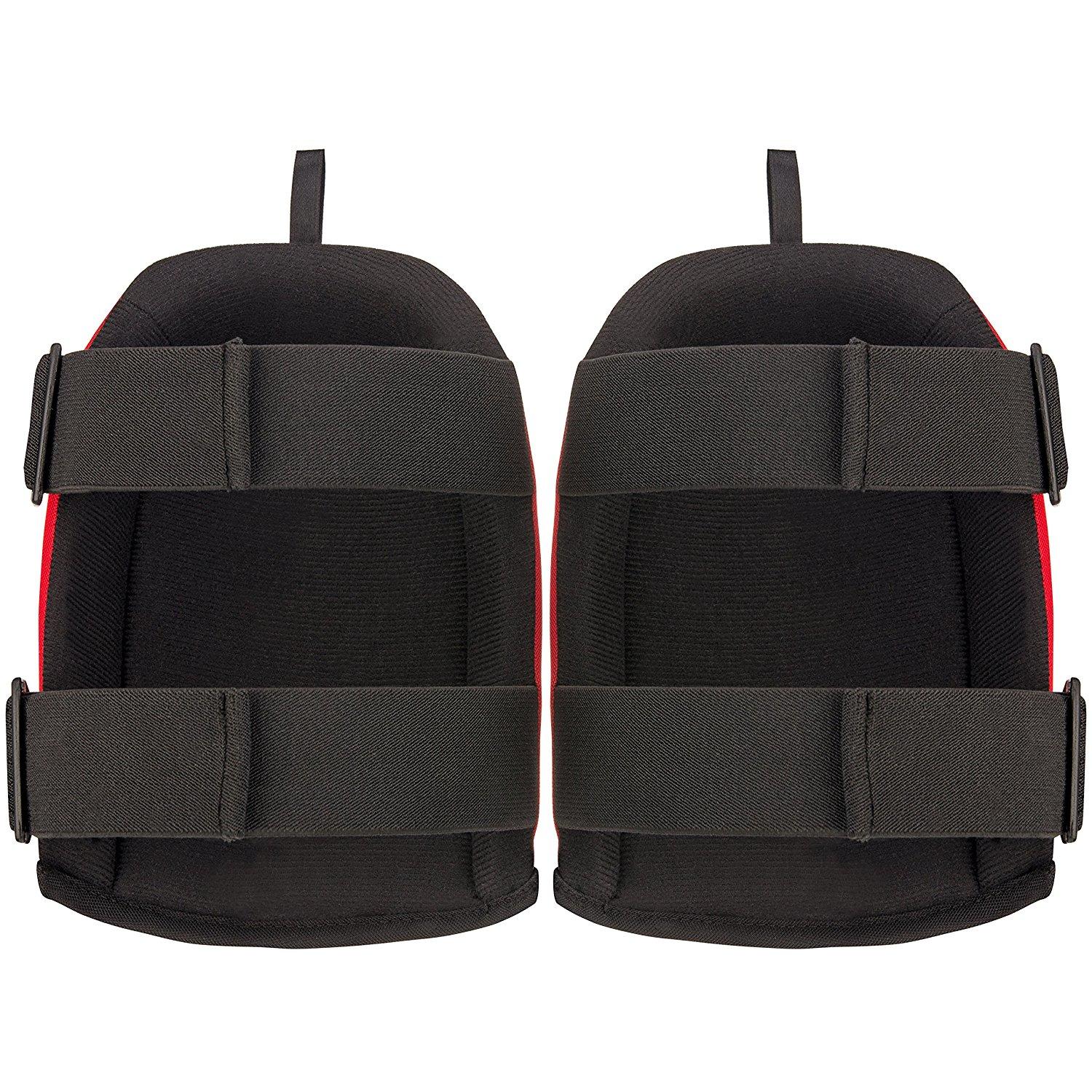NINGBO WEINUO PROTECTIVE EQUIPMENT Co. LTD
We are fully committed to providing our clients with high-quality products, prompt delivery and professional services.
Kneeling can be an awkward working position. However, in some occupations keeping close to the floor for long periods of time is required. Working on the knees with no protection can very quickly lead to discomfort and risk injury from hard or sharp objects on the ground. Also, continuous pressure on the knees involves the risk of chronic diseases and cartilage damage. Therefore, knee protection is recommended for all work carried out in the kneeling position. Kneepads should be designed to make kneeling more comfortable, protect against objects penetrating them and so causing injury to the user, and should distribute the force of kneeling as evenly as possible over a large area.
EN14404:2004 + A1:2010 is the European standard that has been developed to assess industrial knee pads. The results from testing in line with this standard are then used for EU type-examination by a Notified Body such as SATRA. SATRA considers kneepads to be ‘Intermediate design’ products.
The 2010 amendment was introduced to make a few changes to the requirements of kneepads. The main changes to the standard are:
a performance ‘Level 0’ can now be achieved for penetration test, allowing kneepads to make work more comfortable, but provide no protection
the width requirement for protective knee pads straps has been reduced from 40mm to 30mm, which means that straps are less likely to sit in the back of the knee
for kneepads that claim ‘one size fits all, a waist girth of 1,000mm is now used instead of the original 1,200mm.
There are four types of kneepad which have been defined in EN14404:2004 + A1:2010:

‘Type 1’ – independent of other clothing and fastened around the leg by straps
‘Type 2’ – held in pockets on trouser legs or permanently attached to trousers, with the position of the kneepads either fixed or adjustable
‘Type 3’ – normally in the form of a kneeling mat, designed to be placed on the floor as the user moves around
‘Type 4’ – incorporated into other devices, with additional functions such as a standing aid or a kneeling seat.
There are several requirements for all the types above outlined in EN14404:2004 + A1:2010 for testing the performance of kneepad protection. To simulate kneeling pads for work several times in quick succession, a peak transmitted force test is carried out (figure 1), which uses an impact energy of five joules and involves striking the same point five times within five minutes. A force distribution test is used to assess the kneepad’s effectiveness in spreading the load over its surface when kneeling. In addition, a penetration resistance test is used to assess the performance level of a kneepad at protecting against sharp objects. During the penetration resistance test, the internal surface of kneepads must not deflect by more than 5mm when one of the following levels of force are applied:
Level 1 requires the kneepad to resist a force of 100N
Level 2 requires the kneepad to resist a force of 250N.
The 2010 amendment has allowed manufacturers to claim Level 0 for the penetration test, should they fail to reach the required force of Level 1. The vuino knee pads would, therefore, only be suitable for flat surfaces and it would be necessary to state in the user information that they offer no penetration protection.
There are also several requirements in EN14404:2004 + A1:2010 for protective coverage, restraint and ergonomics. The protective coverage of a kneepad shall have certain dimensions, depending on the intended user’s waist girth. These dimensions are then used as the region for carrying out the protection performance tests. Restraint testing is carried out on Type 1 and Type 2 kneepads. Type 1 kneepads usually consist of elasticised straps which must be able to tighten sufficiently to prevent excess movement. To avoid circulatory problems, they also need to accommodate changes in the shape of the knee while the wearer is kneeling.
Tests for the straps include a 10N restraint test (performed up and down the knee to ensure that no excess movement occurs) and a compliance of straps test, which requires the straps to stretch by at least 40mm when subject to a force of less than 10N. Straps are also required to be at least 30mm in width. Type 2 best knee pads are normally placed in closed pockets and do not require a restraint test, unless they are held in place using a different method. Finally, ergonomic trials are carried out on the work knee pads to assess how comfortable they are and to see if they remain in place during use. The test subject walks around for 15 minutes and is required to kneel ten times during this period, with one kneel lasting five minutes and one kneel requiring a 10 metre shuffle.
Copyright © 2019 NINGBO WEINUO PROTECTIVE EQUIPMENT Co. LTD. | All Rights Reserved